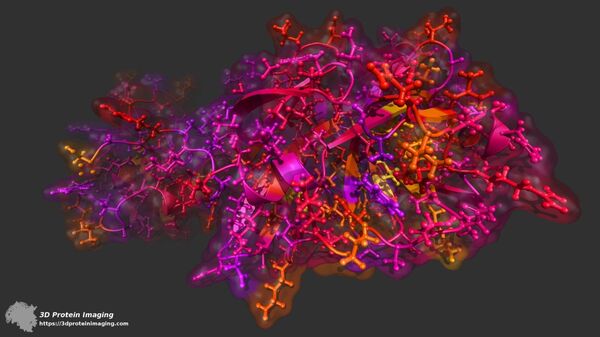The use of drugs which suppress the coronavirus and interfere with its reproduction, and the treatment of patients with plasma antibodies can cause its accelerated mutation and the emergence of new strains, Dr Ancha Baranova, a professor of molecular biology and microbiology at George Mason University, has told Sputnik.
“If we turn to the primary analysis - that is, to the results which British scientists have made publicly available - I would like to highlight certain points. The infectivity of the virus has increased, and this is striking. However, the increase in infectivity does not in itself mean that the disease has become more dangerous,” Baranova stressed. “But scientists have also noticed another important thing – that this strain came about as a result of the virus’s evolution in one host,” she added.
The long-term presence of SARS-CoV-2 occurs when the host subject suffers from immunosuppression, ie an indication that the defence mechanisms making up a person’s immune system, such as white blood cells, the spleen or lymph nodes, are not working properly.
Dr Baranova recalled that in medical practice, people with HIV or those undergoing organ transplants are given immunosuppressive therapy in the form of medication. “The use of such therapy is correct, but also creates the conditions for a virus to sit in a person’s organism for longer. The patient suffers less from the illness, but it takes more time for the body to clear itself of the virus,” she indicated.
According to the academic, the treatments which have been used to treat SARS-CoV-2 have likely helped the contagion to evolve faster.
“For instance, we use coalescent plasma, which contains a large amount of specific antibodies. They kill the virus. But the body of a person who is ill seriously and for a long time often contains more than one type of SARS-CoV-2. The plasma removes those viruses which bind to antibodies, but leaves the rest. A directed evolution of the virus takes place,” she said.
Dr Baranova also says that the use of broad-spectrum antiviral medications such as Remdesivir and its various analogues contributes to the creation of ‘damaged’ or mutated variants of the virus.
“For the most part, these are not viable specimens, although some can turn out to be promising material for viral evolution. Then we add the convalescent serum, knocking out the standard intact viruses, and the promising mutants that remain ‘go out into the world’,” she said.
Dr Baranova is a leading researcher in functional genomics of complex human diseases, and has dozens of published papers in peer-reviewed scientific journals including Genomics, Hepatology, Clinical Cancer Research, Bioinformatics, and others. Educated at Moscow State University, the academic has had her work cited more than 9,500 times by other scholars.




